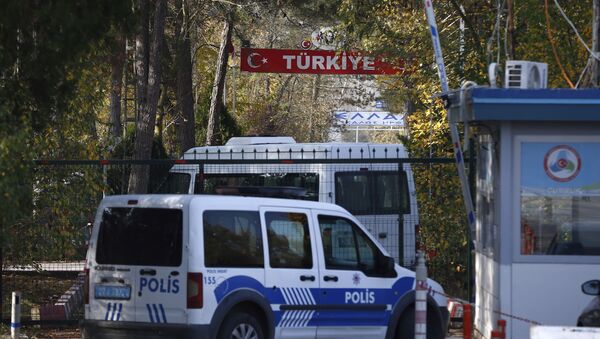Greece's ANT1 channel reported that there was no discussion about Mike Pompeo's possible participation and mediation in the Greek-Turkish conflict or about possible US assistance.
"There is no US mediation agreed, neither high nor low," the State Department spokesman said, adding that "mediation doesn't work out well…"
In turn, Greek Foreign Minister Nikos Dendias also made it clear that there were no official statements on the US mediation initiative:
"I deny the fact that there was any statement on the US mediation initiative. But there is continuous communication (between Greece and the United States). A direct line connects the Greek government with Pompeo. This is a fact," Nikos Dendias said.
What Should Greece do to Resolve Discord With Turkey?
Geostrategic analyst Pavlos Antonopoulos and associate professor of international politics at Democritus University of Thrace Sotiris Serbos expressed the opinion that Washington will never defend Greece's interests in the region, and that Washington's non-intervention should come as no surprise.
"The US refusal (to influence the situation) is not surprising, and the Greek state should understand that there is a deep history of US refusals to protect Greece's sovereign rights. In a changing world where US dominance is shifting towards a more balanced system, adjustments should also be made to how such problems are solved. Western institutions such as the EU and NATO haven't been able to resolve the Greek-Turkish conflict. As the world becomes more and more multipolar, Greece should use its historical heritage as the first Eurasian civilisation and strengthen its ties with the East, especially with Russia, which has a history of successfully influencing Ankara and its aggressive behaviour," Pavlos Antonopoulos emphasises.
"Turkey's refusal to sign the United Nations Convention on the Law of the Sea and accept the jurisdiction of the International Court of Justice makes difficult any attempt to reduce tensions. As a result, Greece should always strive for stability in bilateral relations with Turkey, while Ankara continues changing naval maps and creating new military bases in the occupied territory of Cyprus," he says.
"The Turkish President has his own vision of dominating the region with the support of the Muslim community, as he has already done in Syria or Libya; and it will be difficult for Greece to avoid a crisis in relations with Turkey due to Ankara's expansionist policies. Due to the economic and geopolitical interest in stabilising the situation in the Aegean, Russia should act as a third party to neutralise the Greek-Turkish conflict, in its commitment to current peace and cooperation with Turkey, as well as historical, religious and cultural ties with Greece," the expert concludes.
"Initially, there were reports that Mike Pompeo had spoken about Washington's initiative to ease the tension between Greece and Turkey, then the State Department withdrew their promises, citing US strategy since the 1970s," Sotiris Serbos notes.
"Turkey uses its geopolitical advantage and negotiates with both the United States and Russia. Turkey has many advantages in its diplomatic portfolio. A recent example is Turkey and Russia's unified ceasefire position in Libya. The truth is that Greece's strategic position in recent years doesn't allow it to act like Turkey. For example, after the signing of the Prespa Agreement, Greece has become even closer to the Euro-Atlantic alliance. One of Athens's strategic choices that could run counter to Russian interests is the East Med pipeline, which will reduce Russian gas supplies to some extent," he says.
Turkey is thinking about many issues in the medium and long term. It is not worried about tomorrow, but about the day after tomorrow. Turkey seeks to play an important role in the Eastern Mediterranean and, at the same time, take advantage of the shortcomings in the US Navy's presence.
At the same time, Russia is creating guarantees for the future of both Syria and Libya. This means that one should take into account Russia's influence in the region," Sotiris Serbos pointed out.
"All this should ultimately be considered by Greece in the context of national strategy. Greece's national interests should be tied to the interests of the main players currently operating in the region in the context of a geopolitical reshuffling of forces. If there is an opportunity to agree with Russia on Turkey, it's worth considering it. No matter what, if the conflict with Turkey escalates, only Greek armed forces, and no one else, will take on the obligation," he concludes.

